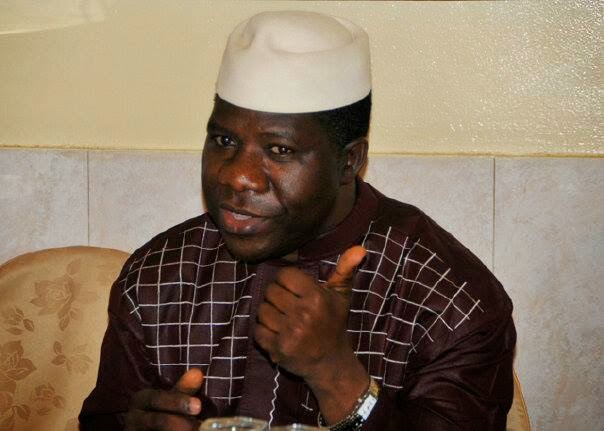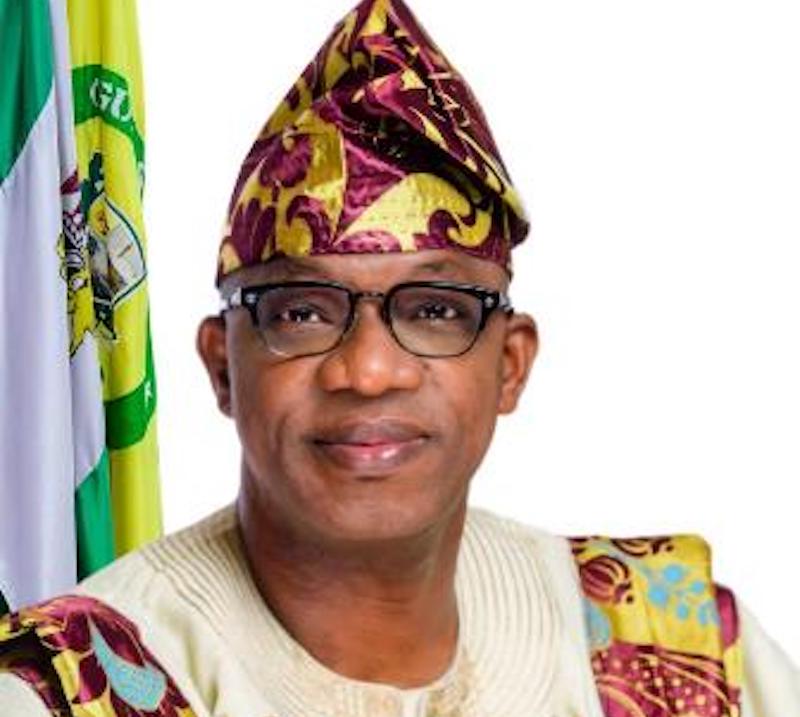Nigeria Needs An Ethical, Highly Professional Police System – Bamidele
Senate Leader, Opeyemi Bamidele, has said that Nigeria needs an ethical and highly professional Police system that respects and protects civil rights, adding that recruiting more officers will not solve the various problems facing the country presently.
Delivering the annual distinguished Personality Lecture organised by the University of Ilorin Department of Political Science on Monday, Bamidele said that the establishment of state police would, however, go a long way to mitigate Nigeria’s current security challenges with the proper control mechanisms put in place.
In the lecture, ‘Constitutional Amendment and Political Dynamics of State Policing in Nigeria,’ which was organized in conjunction with the Institute of Legislative Studies of the University, the senator said that security affairs should be decentralized in the country.
He said, “The numerous problems of the Nigerian Police are well known. However, simply recruiting more officers will not solve the problem. Nigeria needs an ethical and highly professional Police system that respects and protects civil rights. While this requires proper training, the Police needs to be adequately funded to achieve this and improve the living conditions of the members of the force.”
Bamidele said that Nigeria must explore state policing as the next available option for the central police force and added that the central police force had failed to effectively manage the nation’s security challenges.
The Senate Leader, however, said that the move towards State Policing is not without its political complexities. He added that one of the primary concerns is the potential for abuse of power by state governors, who he said might use State Police forces to suppress political opposition or violate human rights.
“This fear is not unfounded, given Nigeria’s history of political tensions and abuse of power.
“To mitigate such risks, any constitutional amendment must be accompanied by stringent checks and balances. There should be robust mechanisms for oversight and accountability to ensure that State Police forces operate within the bounds of the law and respect citizens’ rights. Federal oversight, independent review boards, and clear legislative frameworks are essential to prevent misuse of power.
“Another critical aspect to consider is the economic feasibility of State Policing. Establishing and maintaining State police forces requires significant financial investment. States must be prepared to allocate adequate resources for training, equipping, and remunerating their police personnel.
“The Federal Government, on its part, can support this transition through grants and technical assistance, ensuring that no State is left behind due to financial constraints. The path to constitutional amendment and establishing state policing in Nigeria must be carefully navigated. It requires broad consensus and collaboration among Federal, State, and Local Governments.
“Stakeholders, including civil society organizations, traditional leaders, and the general populace, must actively participate in the discourse to ensure the transition is transparent and inclusive.
“Public education and awareness campaigns are also vital to garnering support for this significant change.
“The benefits of State Policing, such as enhanced security, improved community relations, and more effective crime prevention, must be communicated to the Nigerian people.
“In other words, a constitutional amendment to introduce State policing represents a transformative shift in Nigeria’s security landscape. While the political dynamics and challenges are substantial, they are not insurmountable. With careful planning, robust safeguards, and a commitment to democratic principles, Nigeria can build a more responsive, accountable, and effective policing system”, he said.
In his welcome address, the acting HOD, Political Science, Dr. Adebola Bakare, said that the department settled on the topic of Constitutional Amendment and the Political Dynamics of State Policing in Nigeria because of the conflicting trajectory of State Policing among levels of Nigerians.
“While some people argued for the establishment of state police to complement the federal policing architecture to cover the nooks and crannies of the country adequately, others are afraid of what will become of the state police in the hands of tyrant Governors.
“Our intention is to use today’s lecture to stimulate further discourse on the subject matter. We plan to organize a two-day roundtable subsequent to today’s lecture where stakeholders (security officials, CSOs, farmers, herders, marketers, and the media, among others) will be invited to deliberate on the way forward.”
Other dignitaries at the lecture were Senator Lola Ashiru, who represented Deputy Senate President; Senator Barau Jibrin; Senator Saliu Mustapha of Kwara Central; Senator Sadiq Umar, representing Kwara North; Vice Chancellor, University of Ilorin; Professor Wahab Egbewole, among others.





